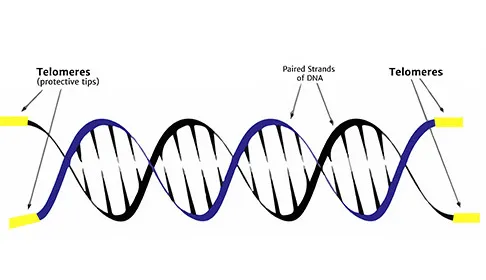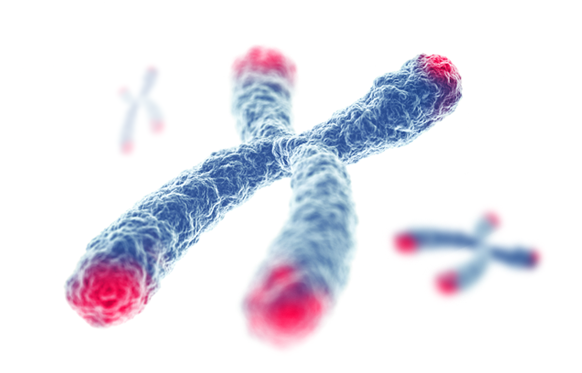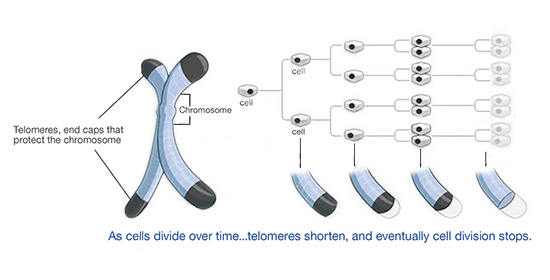| Item | Price | Qty | Total | |
|---|---|---|---|---|
 Loading Cart...
Loading Cart...What is a Telomere?
What is a Telomere and what is its function?

Telomere (tel-uh-meer) from the Greek telos (end) and meros (part).
Telomeres are an essential part of human cells that affect how our cells age.1,2
Telomeres are the caps at the end of each strand of DNA that protect our chromosomes, like the plastic tips at the end of shoelaces.3
Without the coating, shoelaces become frayed until they can no longer do their job, just as without telomeres, DNA strands become damaged and our cells can’t do their job.3
Telomere Shortening
Short telomeres are connected to premature cellular aging.3,8
Telomere shortening is involved in all aspects of the aging process on a cellular level. Telomere length represents our biological age as opposed to our chronological age.
Many scientific studies have shown a strong connection between short telomeres and cellular aging.8
Without the protection
from telomeres, our cells age and die

Scientists know a lot about telomeres, and they continue to find new evidence about the role telomeres play in the aging process on a cellular level8
Background
The fact that telomeres protect our DNA was first observed in the 1930s.6
Scientists made the link between telomeres and cellular aging nearly 40 years ago.6
Research studies
In 2009, the Nobel Prize for Physiology/Medicine was awarded to three scientists who discovered how an enzyme called telomerase impacts telomere length.
First randomized, double-blind, placebo controlled study to show telomeres getting longer in humans.12
Today & tomorrow
There are more than 20,000 scientific articles published about telomeres.
An ever increasing number of scientists continue to study telomeres and the benefits of stopping or possibly reversing the telomere shortening that happens as we age.

